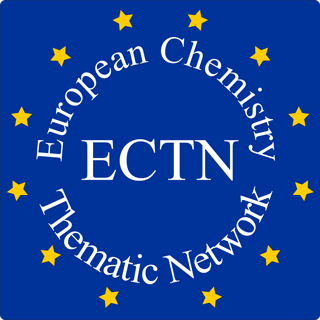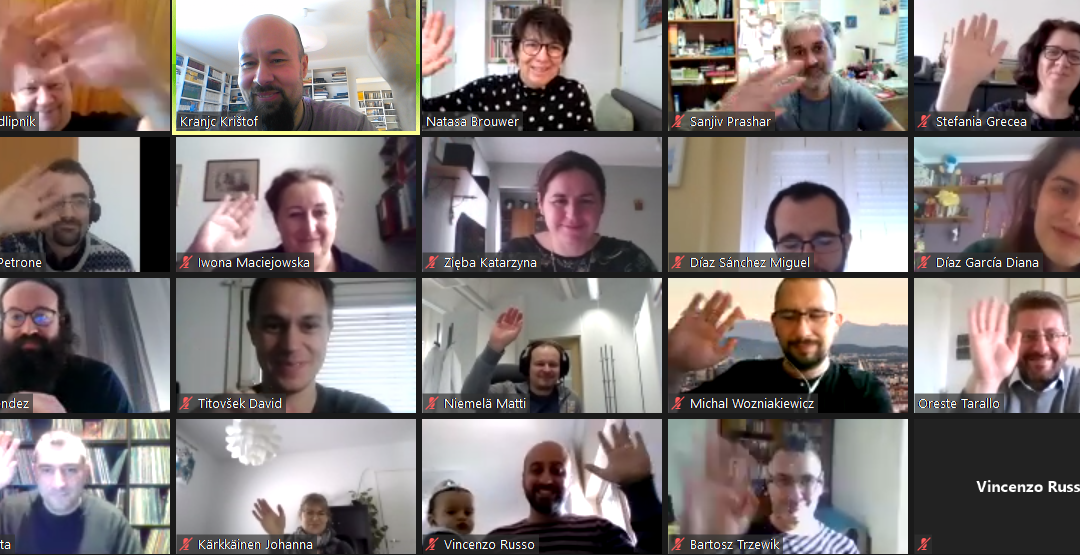
Mar 30, 2021 | News
An on-line LTT event from the Faculty of Chemistry and Chemical Technology, University of Ljubljana, Slovenia, from 17th to 20th February 2021
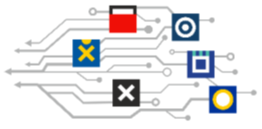
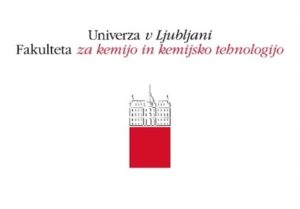
The workshop with the title “How to design a MOOC?” was organized in the frame of the STEM-CPD@EUni project (2020-1-PL01-KA203-081802) and took place on-line from 17th to 20th February 2021. Albeit the event was initially planned to take place at the University of Ljubljana, Slovenia, due to COVID-19 restrictions it was organized online. The programme of the training event can be found at: https://micromoocs.eu/moodle/course/view.php?id=2
At the workshop, groups from the University of Amsterdam, Jagiellonian University from Kraków, University of Ljubljana, Rey Juan Carlos University from Madrid, University Federico II from Napoli, and University of Oulu participated, with on average 25 people attending each session. The programme was composed of four key-note lectures given by Prof. Dr. Paul Taylor (University of Leeds, UK), Prof. Dr. Marko Radovan (University of Ljubljana, Slovenia), Prof. Dr. Andrew Parsons (University of York, UK), and Prof. Dr. Barica Marentič Požarnik (University of Ljubljana, Slovenia). Additionally, there were oral presentations and hands-on sessions by Mitja V. Iskrić and Sanja Jedrinović (both University of Ljubljana, Slovenia) and Nadya Stels (iSpring Solutions). As the workshop was principally a learning and training event, a large amount of time was devoted to round table discussions and group work. At the end of the workshop, short presentations by each group regarding their progress in designing their own microMOOCs were given. From these presentations and responses of the participants (in the form of questionnaires) it was clear to see that everyone had gained a huge amount of new knowledge in the design and production of microMOOCs, as well as additional confirmation regarding the importance and efficacy of MOOCs in teaching STEM disciplines and beyond.
Assist. Prof. Dr. Črtomir Podlipnik and Assist. Prof. Dr. Krištof Kranjc
(Organizing Committee at the University of Ljubljana)
Disclaimer: The European Commission‘s support for the production of this publication does not constitute an endorsement of the contents, which reflect the views only of the authors, and the Commission cannot be held responsible for any use which may be made of the information contained therein.

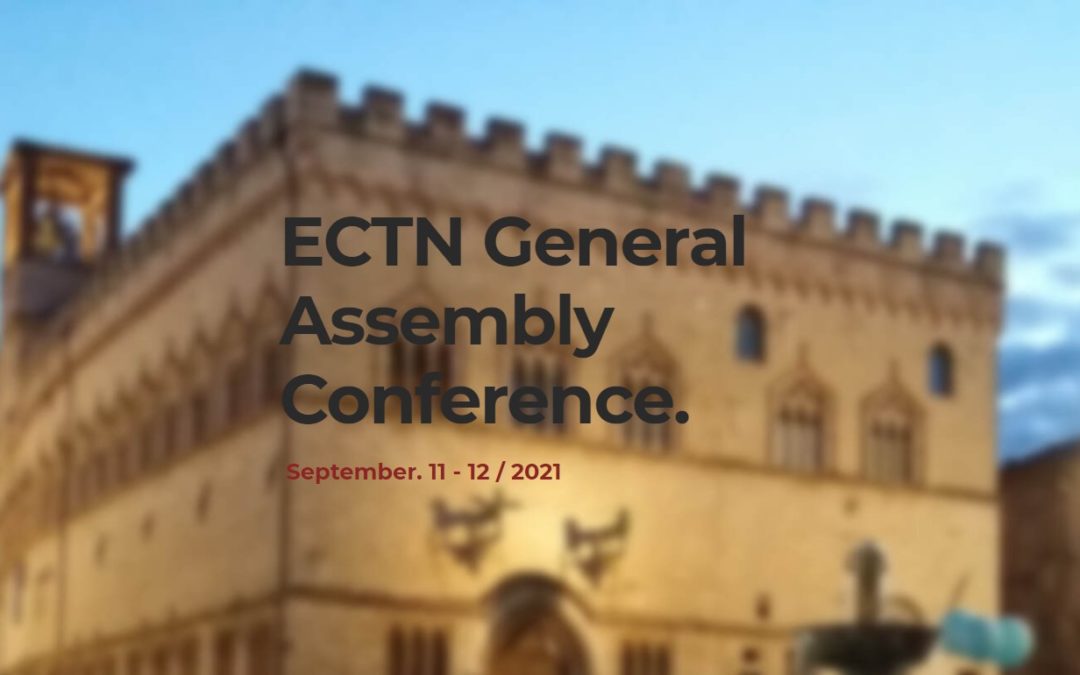
Feb 9, 2021 | Featured post, News
It has been decided to change the dates originally chosen for the ECTN 2021 General Assembly.
The 2021 ECTN General Assembly (GA) will now take place on Saturday and Sunday, 11-12 September 2021, at the Department of Chemistry, Biology and Biotechnology of the University of Perugia (Italy).
The exact address is:
Università degli Studi di Perugia
Dipartimento di Chimica, Bilogia e Biotechnologie
Via Elce di Sotto 8
06123 Perugia, Italy
(click here for the map)
All members are invited to attend and must register in advance. Online registration will be open soon, please follow the ECTN GA website.
For questions concerning the registration process, please contact: ectn_GA2021[at]protonmail.com
For questions about the ECTN GA agenda, please contact the General Secretary: anthony.smith[at]cpe.fr
⬇️⬇️⬇️
If the restrictions due to the COVID-19 pandemic prevent us from holding this meeting safely in Perugia, then an online meeting will be held on Saturday, 11th September 2021. A decision on this will be made in mid-June 2021, depending on the circumstances at that point in time.
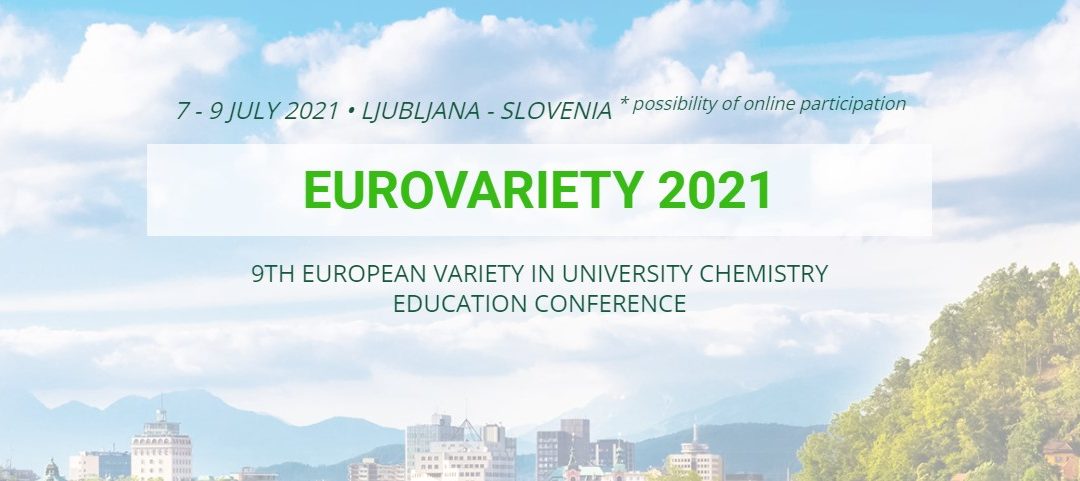
Feb 9, 2021 | Featured post, News
The University of Ljubljana (ECTN member) is organising the 9th edition of the European Variety in University Chemistry Education conference from 7-9 July 2021, with a possibility of online participation.
This is a meeting of chemistry lecturers, which may be of interest to all ECTN members e.g., university teachers of organic, non-organic, computational chemistry, or technology.
Visit the Eurovariety 2021 conference website: http://www.eurovariety2021.si/
Call for abstracts is open until Sunday, 28 February 2021.

Dec 22, 2020 | Featured post, News
The European Chemistry Thematic Network Association is proud to announce that the new issue of the ECTN Newsletter is online!
You can read the December 2020 issue HERE!
In this issue, we highlight and promote all the activities of the ECTN in 2020. The contributions are written by several Administrative Council members, Work Group Leaders, Chairs of the Standing Committees, and the leaders of the STEM-CPD@EUni project.
We thank all of them, for their time and for their initiatives and activities in 2020, and we warmly invite everyone to enjoy the first edition of the relaunched ECTN Newsletter.

Oct 1, 2020 | News
The 2020 ECTN General Assembly (GA) will take place on Saturday, 3rd October 2020 ONLINE, from 11:00-13:00 CEST. All members are invited to attend, but it is mandatory to register in advance. The registration is free and is done through the following online registration form:
https://us02web.zoom.us/webinar/register/WN_9nIh_6USTuSh5WZpROpBOQ
After registering, you will receive a confirmation email containing information about joining the webinar (Webinar ID, password).
In case you are not familiar with Zoom, the Secretariat prepared the installation guidelines and explanations how this programme works. Please read them here: Instructions for Zoom – 2020 ECTN GA
You can see the full GA agenda here: 2020 ECTN General Assembly agenda
Reports from the Committees and the Work Groups can also be seen in advance:
Committees:
VEC: Report on Virtual Education Community Committee activities
LC: Report on Label Committee activities
QST: Report on Quality Standards in Teaching Committee activities
Work Groups
Report of ECTN Work Group on Activities for Students
Report of ECTN Chemistry Student Mobility Work Group and Database
Report of ECTN Work Group on Chemistry in Everyday Life (not available)
Report of ECTN Work Group on Lecturing Qualifications and Innovative Teaching Methods
While part of the meeting concerns necessary business of the ECTN, a large part will be devoted to presentations of what the committees and work groups have been doing over the past year, and showing plans for next year. There will also be a short presentation of the new Erasmus+ project ‘STEM-CPD@EUni’ in which the ECTN is a partner. A further meeting to discuss this project, and the role of the ECTN in it, will be held after the GA on Saturday, 3rd October, from 15:00-16:00 (CEST). You are cordially invited to join this meeting.

Sep 16, 2020 | News
STEM-CPD @ EUni
The ECTN has become a partner in a new project entitled: STEM Continuous Professional Development at European Universities. The project was initiated by the ECTN Work Group on Lecturing Qualifications and Innovative Teaching Methods, and is led by the Faculty of Chemistry, Jagiellonian University in Krakow (ECTN member). This 3-year project is funded by the EU under the KA2 – Cooperation for innovation and the exchange of good practices, KA203 – Strategic Partnerships for higher education action of the Erasmus+ programme of the European Union.

For a long time, there has been an erroneous belief that being a renowned researcher is enough to be a decent university teacher. Now it is generally recognised that for good teaching abilities, pedagogical knowledge and teaching skills need to be developed and to this effect, most universities now organise some training for their academic staff. According to the survey of the European Chemistry Thematic Network Association (ECTN) Working Group, the training for lecturers at different universities greatly varies and are on the most part voluntary. Besides, the teaching staff training is usually focused only in pedagogy and in general teaching skills. They are organised in groups of lecturers in different disciplines. In this way, training cannot address specifics of teaching and learning in one determined discipline and the potential that specific digital tools can have for one discipline. This means that university lecturers in the present situation at most HE institutions cannot develop nor keep up to date with their Technological Pedagogical Content Knowledge (TPACK) (Mishra and Koehler 2006).This is extremely important in STEM disciplines where there is a fast development of science and technology knowledge which is strongly connected to complex social quests that have a multicultural dimension.
To cope with these changes and to assure sustainable quality of teaching and learning in university STEM disciplines, a STEM oriented Continuous Professional Development (STEMCPD) of lecturers at their universities is indispensable. It is known that professional development works on its best if it is closely connected to working practice, in our case STEM teaching practice.
It is a very complex and demanding task for one university by itself to organise continuous professional development activities for the lecturers in each and all particular disciplines in which they operate. Even more, we believe that no university in Europe, no matter how big or wealthy, can correctly handle this alone because collaboration is essential to reach the necessary international discourse focusing specially towards quality considerations.
The aim of this project is to promote the importance of CPD at the EU universities in order that lecturers can keep on track with the quality of teaching and learning considering the developments in STEM disciplines and in society and cope with challenging problems that arise. The main goal is to develop a sustainable cooperation between people who organize or who wish to organize technological pedagogical content knowledge oriented CPD activities at their universities. This will be based on an inter university collaboration framework within the EU context, the so-called CPD-Ambassadors and through the activities of said CPD-Ambassadors with the aim of improving the teaching competences of university lecturers at their home universities and in consequence improve university courses. This will increase notably motivation and enhance learning outcomes of the students.
CPD needs to be considered as a normal part of professional life for all academic staff. The project will bring together a broad spectrum of learning opportunities for teaching staff of participant institutions in order to improve the quality of education in university STEM by enhancing the quality of teaching and learning – one of the priorities in the current Bologna Agenda and the Paris communiqué. Partners in the STEM-CPD@EUni project will create synergies between professional development in teaching and research, supporting collaboration and communication of the academic staff with educational developers, professional bodies and the private sector.
To give the impulse to this process and to empower the local CPD activities at the STEM faculties during the project, a summer school will be organized twice with the aim of training future CPD-Ambassadors. The philosophy of the summer schools is to train the trainer in co-creation. At the summer school the CPD-Ambassadors will gain knowledge, receive relevant material and produce their own resources to organize CPD activities at their home universities, the so-called user cases.
In this project, six partners will collaborate on six intellectual outputs (IOs):
- In IO1 a Roadmap to set up STEM continuous professional development at EU Universities will be designed based on the expectations of the different stakeholders.
- In IO2 the Framework for STEM-CPD according to the CPD-Ambassador principle will be developed.
- In IO3 STEM-CPD scenarios and user cases will be collected and shared on the open platform.
- In IO4 open online modules, the microMOOCs, will be developed to be used in CPD activities in different user cases.
- In IO5 will design the summer school, its activities, materials and certification of CPD-Ambassadors.
- In IO6 the evaluation and effect measurements will be conducted to evaluate user cases and CPD scenarios in the European context.
The list of partner institutions for STEM-CPD@EUni:
Disclaimer: The European Commission’s support for the production of this publication does not constitute an endorsement of the contents, which reflect the views only of the authors, and the Commission cannot be held responsible for any use which may be made of the information contained therein.




